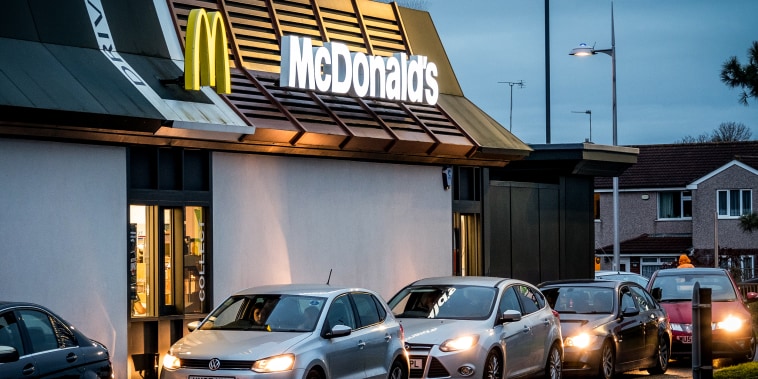McDonald’s wants to open more than 8,800 locations and add 100 million members to its loyalty program by 2027.
The targets are part of the fast-food giant’s long-term plans to grow sales across its already sprawling restaurant footprint.
McDonald’s announced its new goals ahead of its investor day on Wednesday, as it looks to persuade shareholders that diners’ appetites for its Big Macs and McNuggets are still growing, even as Wall Street worries about the economy and the threat posed by weight-loss drugs. The burger chain is expected to offer more details about how it plans to keep attracting customers, including by phasing in an improved version of its burger and doubling down on chicken.
For 2024, McDonald’s is projecting net new restaurant growth of 4%. Nearly 2% of next year’s systemwide sales growth in constant currency will come from adding to its footprint.
After 2024, the company plans to grow its restaurant count by 4% to 5% annually. Those new locations will contribute about 2.5% of systemwide sales growth in constant currency.
McDonald’s big development plans will mean higher capital spending. For 2024, the company anticipates $2.5 billion in capital expenditures, up from its expectation of $2.2 billion to $2.4 billion in 2023. And for every year from 2025 through 2027, McDonald’s expects to increase its capital expenditures by $300 million to $500 million sequentially.
By 2027, McDonald’s wants a global footprint of 50,000 locations. The chain had 41,198 restaurants worldwide as of Sept. 30. For comparison, Starbucks in November said it aims to reach 55,000 cafes worldwide by 2030, up from its current count of more than 38,000.
To reach its development target, McDonald’s plans to open 900 U.S. locations, 1,900 restaurants in its international operated markets segment and roughly 7,000 units in its international developmental licensed markets division.
The company’s IOM business includes markets like France, Canada and Australia, and accounts for nearly 50% of the company’s revenue. McDonald’s IDL segment includes China, which will account for more than half of the division’s new locations. In late November, McDonald’s announced it had bought back a minority stake in its China business.
Executives have said that its current footprint is outdated and doesn’t reflect where consumers currently live, including the shift to the South and Southeast in the U.S.
In January, McDonald’s CEO Chris Kempczinski said in a broader announcement about a corporate restructuring that the company would accelerate new restaurant development. This is the first time the company has disclosed its new development targets.
In addition to its ambitious plans to expand its footprint, McDonald’s wants to reach a quarter of a billion active members for its loyalty program by 2027. At its last investor day, in 2020, the company was still testing the loyalty program in the U.S. But since then, it has grown to be a juggernaut, boosting mobile sales and encouraging customers to return more frequently.
“In the future, data will sit alongside restaurant locations as another significant competitive advantage,” McDonald’s U.S. President Joe Erlinger told investors on Wednesday.
McDonald’s also announced a partnership with Alphabet’s Google Cloud, using its artificial intelligence across its restaurants to improve operations.
“We’re excited to see how McDonald’s will use our generative AI, cloud, and edge computing tools to improve their iconic dining experience for their employees and their customers all over the world,” Alphabet CEO Sundar Pichai said in a statement.
